Hemingway Audio Prime Signature Cables
|
|
| An Enigma No More |
|
|
|
March, 2012 |
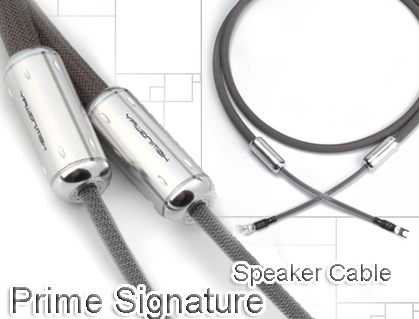
Hemingway Audio is a brand of high-end audio cables made by a Seoul, Korea-based company called Sigma Wire Labs, Inc. The cables are a lot like the man for which the company is named: big, bold, beautiful, and a complete and absolute enigma. You won’t find much, if any, advertising of the company’s products on the web or in any industry publications. You won’t find any pictures of Ernest Hemingway hawking the cables’ design attributes or claims that the way he twisted spaghetti on a fork was the inspiration for the wire’s geometry. In fact, here’s the only thing you will find on their website that will tell you about the people behind these enigmatic cables: “An artist, a machinist, an electronics whiz, a political idealist and several audio whizzes compose Hemingway Audio. Everybody is an enthusiast who melds aesthetic and technical considerations into eye-catching, densely packed, compact music delivering cables that are ruggedly built and functionally elegant.” That’s it. Call off the dogs, the hunt is over. That’s all there is to know about this company. Right, and all there was to know about Ernest Hemingway was that he was a big white guy who shot some rhinos, wrote some stuff and at age 61, decided he was tired of living.
Now of course there was much, much more to the man than that, just as there is far more to this company than the above quote. The Hemingway website is simultaneously one of the slickest and most frustrating I’ve ever seen. There are plenty of links that seem to only take you to a few drawings about what the cables do and the homepage, so good luck in getting much information there. But let’s face it, anything else that we might learn about these cables or this company would be irrelevant to how well they perform. So I’ll limit this review to simply talking about the impact that these cables had on my reference system. I’ll leave it to you to uncover any of the mysteries about the people and technological specifications of these products.
Ready for Prime (Signature) Time
Jay Bertrand of Nashua, New Hampshire-based Bertrand Audio Imports, is the U.S. importer of Hemingway Audio. He has always had a penchant for importing little known but exquisitely built products, like the Hemingways. He contacted me to tell me about the cables and was even more enthusiastic about their capabilities than he was about other cables that he had imported in the past. So I told him I was definitely interested and eager to get the cables in for a review. A few weeks later, they arrived.
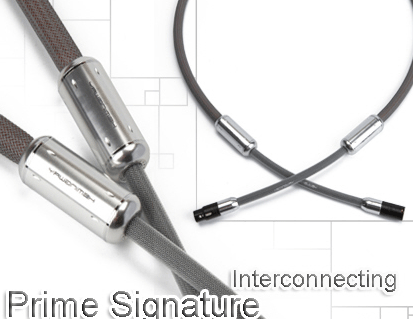
 Hemingway Audio makes three lines of cables: the Ultimate, Prime Signature, and Prime Reference. Jay sent me a complete suite of the Prime Signature cables, which are a step below their top-of-the-line Ultimate cables in price. The cables arrived nice and tightly packed in a surprisingly small box. Once the box was opened, one big beautiful cable after another came pouring out. Each cable came wrapped in a plastic sleeve with neat micro-suede socks covering each end. As I examined the cables I was stunned by just how beautiful and well built they were.
Hemingway Audio makes three lines of cables: the Ultimate, Prime Signature, and Prime Reference. Jay sent me a complete suite of the Prime Signature cables, which are a step below their top-of-the-line Ultimate cables in price. The cables arrived nice and tightly packed in a surprisingly small box. Once the box was opened, one big beautiful cable after another came pouring out. Each cable came wrapped in a plastic sleeve with neat micro-suede socks covering each end. As I examined the cables I was stunned by just how beautiful and well built they were.
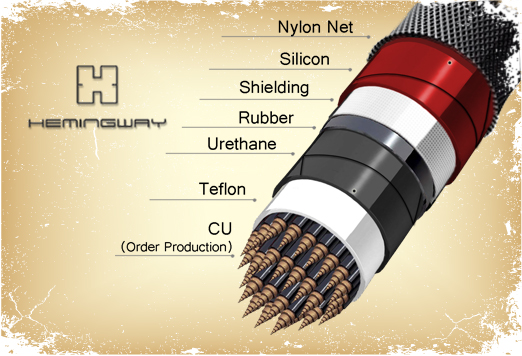
The Prime Signature cables are made of Functionally Perfect Copper (FPC) wires wrapped in layers of Teflon, urethane, rubber and silicon. The RCA connectors on the interconnects are beautifully polished and reeked of luxury. The XLR connectors were high-quality Neutrik connectors and were equally impressive. The speaker cables are nicely terminated with high-quality spade connectors and the power cords use extremely rigid and nicely finished IEC connectors. The jackets for all cables are made of a brown nylon mesh material. The cables were stiff but not ridiculously so, and I didn’t have any trouble working with them in my system.
The main technological feature of the Hemingway cables (that you actually can find illustrated and discussed on their website) is their FMCF (Frequency Modulation Cavity Fundamentals) technology. Essentially speaking this technology uses a filtering system which removes artifacts such as signal ghosts, resonance and noise, resulting in a sound that is quiet and significantly more true to life. The website claims that the cables are “… the most complicated and elaborate in the world.” I’m not certain about that claim, but they are as well-built a cable as I’ve reviewed.
The Review System
For the past two years I have been using Entreq Audio Konstantin cables in my reference system. The system that the Hemingway cables were used in consisted of an Oppo Digital DV-980H Universal Disc Player (as transport) connected to a City Pulse Audio DA-203e USB DAC, George Warren Precision Sound turntable, Apple TV, clearaudio Smartphono, Classe’ Audio CP-800 preamp and CA-M600 mono amps, Vitus Audio RI-100 integrated amp, and Dynaudio Sapphire and Escalante Fremont loudspeakers. I also used a modified APC power conditioner and Acoustic Revive RTP-2 Ultimate Power Supply Box. I would characterize the sound of this system as neutral, real neutral. When a change in component or cable is made, it is usually easily recognizable. So what effect did the Hemingway cables have on my system? Thankfully, a little more than nothing. Let me explain.
Listening
When you already have a highly resolved system featuring cabling that helps provide an open, detailed and expansive soundstage, you don’t necessarily want introducing new cables to change that unless those cables simply give you more of the good things you’re already getting. That eventually was the case with the Hemingway cables. I say “eventually” because as you may have guessed, like most cables, out of the box it was obvious that they need a little time to break in. Since I had been using a full suite of the Entreq cables, I decided to take all of them out and replace them with the full suite of Hemingway Prime Signature cables.
 Fresh out the box the cables sounded good but not great. Music was a bit bright and edgy, but despite that, the soundstage was spacious and the vocals from the song “Baby I’m A Fool” from Melody Gardot’s, My One And Only Thrill [Universal Records] were rich and breathy. Frankly, they didn’t sound all that different from my Entreq cables, which was a good thing. But these are also far more substantial and substantially priced cables than the Entreqs, so I actually had higher expectations for them. But I figured it would just be a matter of being patient until the cables had fully broken in. According to the Hemingway website, two days of break in should get you to a 100% performance level. Historically, I’ve always found that cables truly sound their best after being broken in for about a week. So I allowed my iTunes library to run through my Apple TV streaming device and into the Citypulse Audio DAC for a week before I began any serious listening. So now, with both my system and the cables all warmed up, I was ready to rock and roll… literally and figuratively.
Fresh out the box the cables sounded good but not great. Music was a bit bright and edgy, but despite that, the soundstage was spacious and the vocals from the song “Baby I’m A Fool” from Melody Gardot’s, My One And Only Thrill [Universal Records] were rich and breathy. Frankly, they didn’t sound all that different from my Entreq cables, which was a good thing. But these are also far more substantial and substantially priced cables than the Entreqs, so I actually had higher expectations for them. But I figured it would just be a matter of being patient until the cables had fully broken in. According to the Hemingway website, two days of break in should get you to a 100% performance level. Historically, I’ve always found that cables truly sound their best after being broken in for about a week. So I allowed my iTunes library to run through my Apple TV streaming device and into the Citypulse Audio DAC for a week before I began any serious listening. So now, with both my system and the cables all warmed up, I was ready to rock and roll… literally and figuratively.
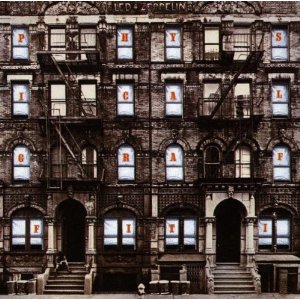 The first song I listened to was “Kashmir” from the classic Led Zeppelin album, Physical Graffiti[Swan Song]. Wow! This is why I love high-end audio. From the first cymbal crash to the last thump of the kick drum, and every note of Jimmy Page’s hard driving guitar blasts in between, I was mesmerized. All of the detail and soundstage spaciousness that I so love were there, but now with a whole lot of muscle too. The same could be said of the song, “Ten Years Gone.” This song is simply a showcase for Page, and it’s critical that the system gets the midrange right… it does.
The first song I listened to was “Kashmir” from the classic Led Zeppelin album, Physical Graffiti[Swan Song]. Wow! This is why I love high-end audio. From the first cymbal crash to the last thump of the kick drum, and every note of Jimmy Page’s hard driving guitar blasts in between, I was mesmerized. All of the detail and soundstage spaciousness that I so love were there, but now with a whole lot of muscle too. The same could be said of the song, “Ten Years Gone.” This song is simply a showcase for Page, and it’s critical that the system gets the midrange right… it does.
Another album that flourished in this system was the CD Herbie Hancock: Possibilities [Vector Recordings]. This entire disc is fantastic, but the two songs that stood out were the opening track, “Stitched Up” featuring John Mayer and the fifth track, “Hush, Hush, Hush” featuring Annie Lennox. Stitched Up is a rollicking party of a song that came straight out of a Kansas City juke-joint. 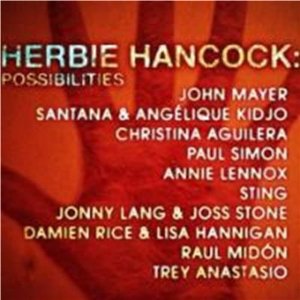 Oddly, Mayer’s guitar and vocals are not what makes this tune go, it’s the percussive rhythm and Hancock’s boogie-woogie infused piano solo that gets the pulse pumping. Throught this system, now bolstered by these cables, the sound of the recording space seems much larger and the pounding of the keys are completely fleshed out. I was able to crank the volume of this bad boy and it kept its composure and musicality. Annie Lennox’s performance of Paula Cole’s “Hush, Hush, Hush” is nearly perfect. The song is about an AIDS-stricken man trying to reconnect with his father. The level of transparency and image detail that these cables help this system to achieve, allow you to really hear deeply into this very moving song. You can hear in Lennox’s voice how she at times struggles to get through the touching words she sings. The one strange part of the song though is Hancock’s excellent but waaayyy too brief solo that comes just as the song starts to fade out. Why did they do that?! Maybe they didn’t want the song to end on an upbeat.
Oddly, Mayer’s guitar and vocals are not what makes this tune go, it’s the percussive rhythm and Hancock’s boogie-woogie infused piano solo that gets the pulse pumping. Throught this system, now bolstered by these cables, the sound of the recording space seems much larger and the pounding of the keys are completely fleshed out. I was able to crank the volume of this bad boy and it kept its composure and musicality. Annie Lennox’s performance of Paula Cole’s “Hush, Hush, Hush” is nearly perfect. The song is about an AIDS-stricken man trying to reconnect with his father. The level of transparency and image detail that these cables help this system to achieve, allow you to really hear deeply into this very moving song. You can hear in Lennox’s voice how she at times struggles to get through the touching words she sings. The one strange part of the song though is Hancock’s excellent but waaayyy too brief solo that comes just as the song starts to fade out. Why did they do that?! Maybe they didn’t want the song to end on an upbeat.
Live recordings are always the litmus test for a system and it’s even more important for the cables to let everything on the recording come out. The size of the venue, the positioning of the instruments and vocalists within the soundstage, and most importantly the emotion in the performance, need to create an experience and not just reproduce music.
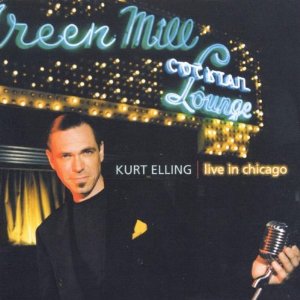 To see how well the Hemingway cables could accomplish this, I relied on my favorite live recording, Kurt Elling’s Live In Chicago [Blue Note]. I love this disc because I’ve been to the Green Mill, the Chicago jazz club where this performance was recorded. So I can easily imagine the sights and sounds of the place. The first two songs, “Downtown” and “My Foolish Heart,” perfectly set the tone for a dynamic set that is loaded with great performances by Elling and his band, pianist Laurence Hobgood, bassist Rob Amster, and drummer Michael Raynor. There are also great solos added by tenor sax players Von Freeman and Ed Petersen. My favorite song on this disc is a cover of Wayne Shorter’s “Night Dream.” This song allows Elling to show off his vocal range (I guess it’s a range), but the real deal are Hobgood and Raynor’s solid contributions. Imaging is superb and the dynamics are off the chain. But what really brings this disc to life is the interaction between Elling and his adoring fans. You can easily get a sense of just how into this performance they are. That’s the mark of a great recording and a great audio system. But you need great cables to get the most out of the two.
To see how well the Hemingway cables could accomplish this, I relied on my favorite live recording, Kurt Elling’s Live In Chicago [Blue Note]. I love this disc because I’ve been to the Green Mill, the Chicago jazz club where this performance was recorded. So I can easily imagine the sights and sounds of the place. The first two songs, “Downtown” and “My Foolish Heart,” perfectly set the tone for a dynamic set that is loaded with great performances by Elling and his band, pianist Laurence Hobgood, bassist Rob Amster, and drummer Michael Raynor. There are also great solos added by tenor sax players Von Freeman and Ed Petersen. My favorite song on this disc is a cover of Wayne Shorter’s “Night Dream.” This song allows Elling to show off his vocal range (I guess it’s a range), but the real deal are Hobgood and Raynor’s solid contributions. Imaging is superb and the dynamics are off the chain. But what really brings this disc to life is the interaction between Elling and his adoring fans. You can easily get a sense of just how into this performance they are. That’s the mark of a great recording and a great audio system. But you need great cables to get the most out of the two.
Conclusion
The Hemingway cables may well be the best cables I’ve ever had in my system. They gave me so much more of what I like in music playback and enhanced every type of music that I listened to. The craftsmanship of these cables is amazing. I seriously enjoyed allowing people to see behind my equipment stand so that they could look upon the gorgeously polished connectors and elegantly styled nylon jacketing. The speaker cables were particularly nice and were a decided step up from my current reference.
So while I still don’t know much about the company behind these cables other than they are, “An artist, a machinist, an electronics whiz, a political idealist and several audio whizzes…”, what really matters is that they sure know how to produce one Hell of a audio cable. Frankly, that’s all I need to know and all that really matters. Highly recommended.

![]()
dave thomas
Specifications
Hemingway Audio Prime Signature MK II
Speaker cables: 3M – $12,000.00/pair, $6,000.00/per additional meter pair
Interconnects: 1.5M – $7,500.00/pair, $3,500.00/per additional meter pair
Power Cords 2M – $5,500.00
Address:
Sigma Wire Lab, Inc
Sigma Bldg. 224-21, Nonhyeon-dong,
Gangnam-gu, Seoul, Korea
Tel: 82-2-508-4664
Fax: 82-31-424-2649
Website: www.hemingwayaudio.com
E-mail: contact@hemingwayaudio.com
North American Distributor
Bertrand Audio Imports
49 Fairview Ave.
Nashua, NH 03060
Tel: 603-883-1982
E-mail: j.bertrand@comcast.net
![]()
Don’t forget to bookmark us! (CTRL-SHFT-D)
Stereo Times Masthead
Publisher/Founder
Clement Perry
Editor
Dave Thomas
Senior Editors
Frank Alles, Mike Girardi, Russell Lichter, Terry London, Moreno Mitchell, Paul Szabady, Bill Wells, Mike Wright, and Stephen Yan,
Current Contributors
David Abramson, Tim Barrall, Dave Allison, Ron Cook, Lewis Dardick, John Hoffman, Dan Secula, Don Shaulis, Greg Simmons, Eric Teh, Greg Voth, Richard Willie, Ed Van Winkle, Rob Dockery, Richard Doron, and Daveed Turek
Site Management Clement Perry
Ad Designer: Martin Perry


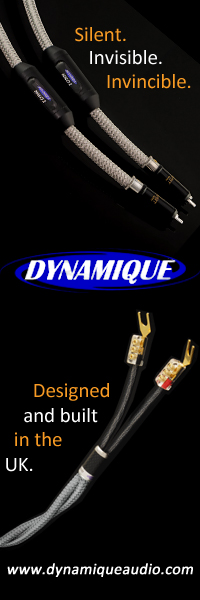
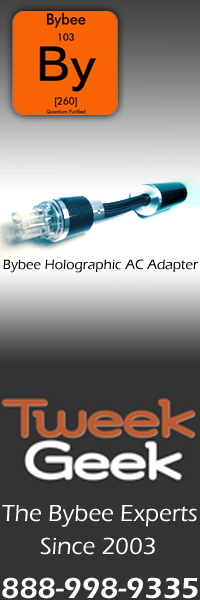
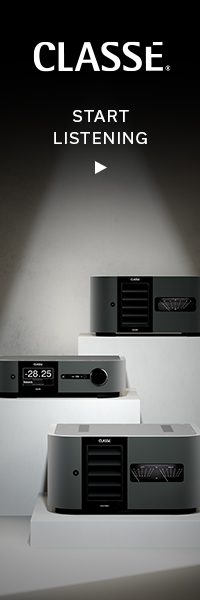
Be the first to comment on: Hemingway Audio Prime Signature Cables